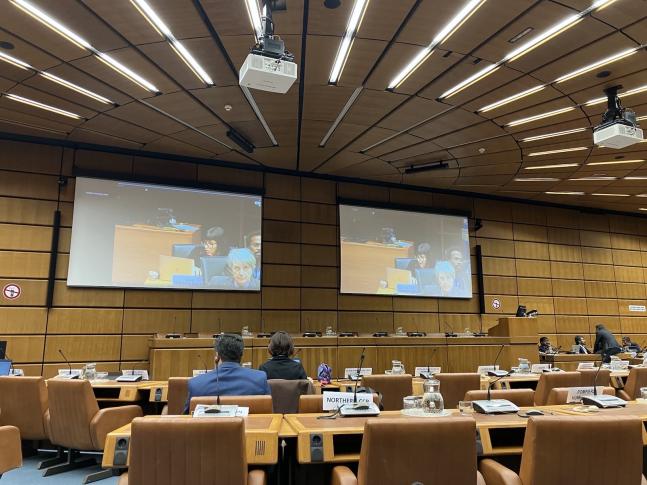
A UN General Assembly Resolution in 2019 established an open-ended Ad Hoc Committee to Elaborate a Comprehensive International Convention on Countering the Use of Information and Communications Technologies for Criminal Purposes. In 2021, it was decided that the Ad Hoc Committee would convene at least six sessions and conclude its work in order to provide a draft Convention to the General Assembly at its 78th session (12-30 September 2023).
In this joint submission to the fifth session of the Ad Hoc Committee, which took place from 11 to 21 April 2023, APC and Derechos Digitales reiterate their concerns about the abusive use of cybercrime national legislation as a tool to undermine human rights, targeting civil society organisations, human rights defenders, digital security researchers, whistleblowers and journalists, and stress the need to reinforce the necessary safeguards to avoid the possibility of state abuse through broad regulations that legitimize cyber surveillance and censorship in general.
At the same time, given that both digital spaces and criminal systems are inserted within societies that have pre-existing structural inequalities, and that digital technologies and the laws and norms that govern them have the potential to promote the exercise of human rights, but can also perpetuate and worsen structural inequalities, APC and Derechos Digitales believe that a central element of this future convention should be the integration of a gender perspective.
The submission also highlights the paramount importance of ensuring that the articles of the convention related to international cooperation, exchange and processing of data and investigation techniques do not include broad measures or vague terms, and must be strictly in accordance with human rights standards, especially regarding the principles of legality, necessity and proportionality.
Read the full submission here.